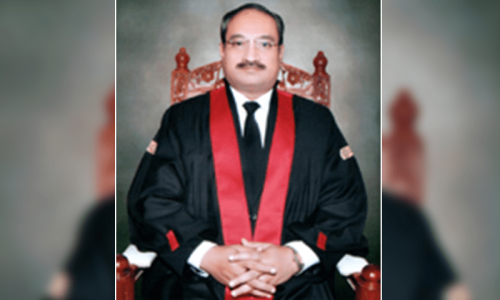LAHORE: On Tuesday, it was revealed that all eight judges of the Islamabad High Court (IHC) were handed letters in white envelopes sealed with cellular tape. The name of the judge and the address of the IHC is written on the envelope. Sources said that the letters had a threatening tone and the judge was responsible for the problems faced by the people of Pakistan.
According to the FIR, the letters were sent with an incomplete sender’s address. In Pakistan, letters attributed to Tehreek-i-Namoos criticized the justice system and said that the threat letter contained a specific image and the words “Bacillus Anthracis” in English.
The next day, similar letters were sent to the Supreme Court and LHC’s Counter-Terrorism Department (CTD) seeking registration of two cases in Islamabad and Lahore.
The letters to the Supreme Court were addressed to Justice of Pakistan Justice Faez Isa, Justice Athar Minallah, Justice Jamal Khan Mandokhail and Justice Aminuddin. They receive them in the Reception and Issues (R&I) Division of the apex court and from there forward them to the judicial officers.
The letters sent by the anonymous group threatened Supreme Court judges to “avoid evil”. A suspicious powder was found inside the envelope and sent to the forensic laboratory.
A quantity of the suspected powder was recovered from each envelope and sent to the Forensic Science Laboratory in Islamabad on Thursday for toxicological and chemical tests.
Chief Justice Malik Shahzad Ahmad Khan, Chief Justice Shujaat Ali Khan, Justice Shaheed Bilal Hasan, Justice Alya Neelum and Justice Abid Aziz Sheikh are the judges who received letters at the LHC.
The judge’s personal staff found the letters in the high court daily, an employee told Dawn on condition of anonymity. He said that all the judicial staff at LHC have been alerted after the letter was sent to the IHC judge.
As a result, Prime Minister Shehbaz Sharif said on Thursday that the government would conduct an inquiry into the matter “with a sense of responsibility”.
The development comes more than a week after six IHC judges wrote scathing letters to members of the Supreme Judicial Council (SJC) alleging that the country’s security apparatus was interfering in the judicial process.





















